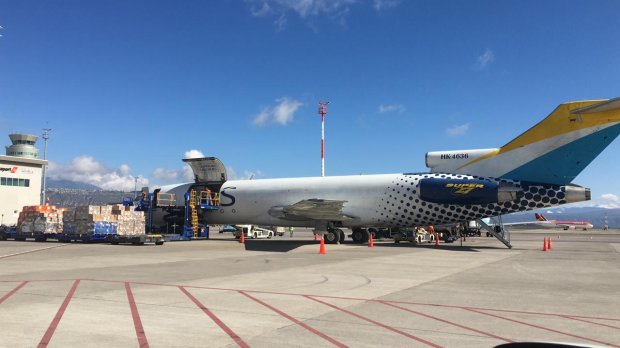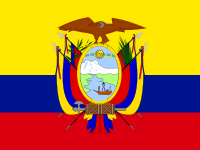634 tons of medicines and medical supplies have arrived in Ecuador through the Quito Airport

Quito, April 21, 2020. – Since the beginning of the Covid-19 health crisis in Ecuador, the cargo operations of the Mariscal Sucre International Airport has received more than 630 tons of imported medicines and medical supplies. Of this total, 540 tons correspond to medicines and 94 tons to medical supplies in general. Approximately 150 import cargo flights have arrived between March 18 and April 19, 2020.
Quito International Airport is the only direct connection between the city and the world, and for this reason it is vital that operations remain open and support the efforts of the Government and private companies to avoid the shortage of this type of goods in the country.
Other products that arrive in the country by air are industrial supplies, especially for the oil industry, and electronic items.
Precisely last night, Monday, April 20, a DHL Boeing 757-200 arrived at the Quito airport bringing a batch of 5,000 Covid-19 tests imported by the Municipality of Quito. According to Mayor Jorge Yunda, who was present to receive the shipment from South Korea, the tests will be used in the first instance for doctors and nurses, police, the military, traffic, control and other officials who are on the first line of the health emergency. The Municipality announced the acquisition of 200,000 tests that will be arriving in Quito periodically every week.
“Maintaining the cargo operation allows us to continue to directly import medicines, supplies and medical materials into the city to face the health crisis. Thanks to all those who work in the cargo logistics chain, we can have these shipments in the city in a matter of hours, which would otherwise take days or even weeks,” said Quiport President and CEO Andrew O’Brian.
The speed with which cargo flights can arrive from any point on the globe would not be possible without the participation of all the actors in the import logistics chain, from the airlines, including Tabacarcen Logistics Center that receives the shipsments and stores them at temporary warehouses within their facilities, and the National Customs Service (SENAE), key to the rapid nationalization of the goods that enter the country through the Quito airport.
“We trust that, with the joint work between the Government, the Municipality and Civil Society, we will emerge from this crisis more strengthened than ever; meanwhile, the import cargo operation guarantees the arrival of the medicines and supplies that the city and the country need," concluded Mr. O'Brian.


